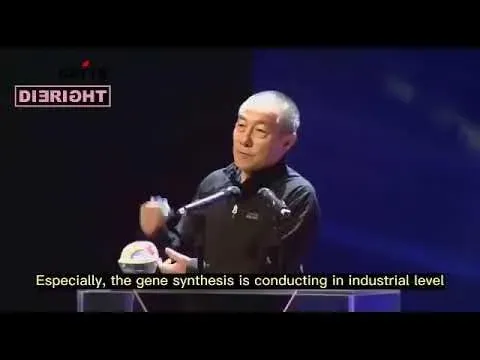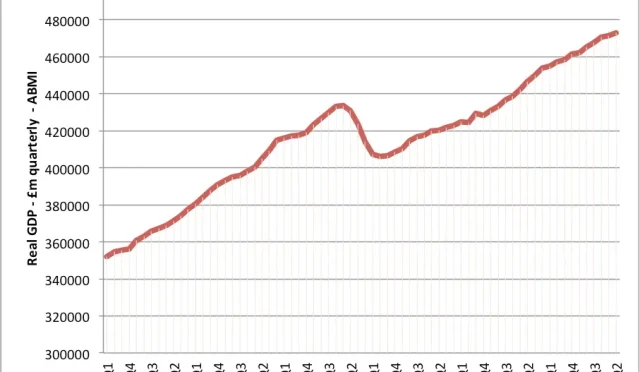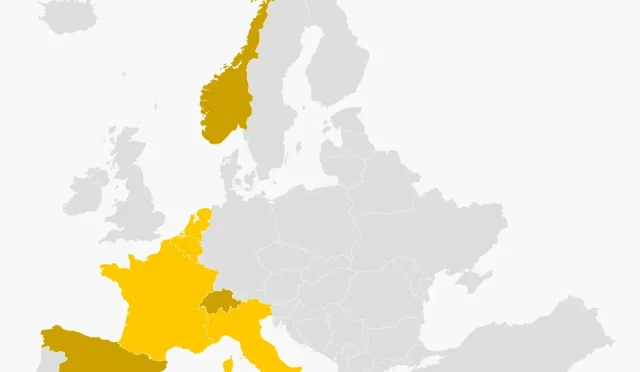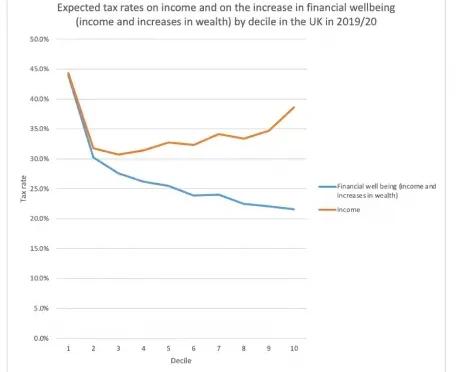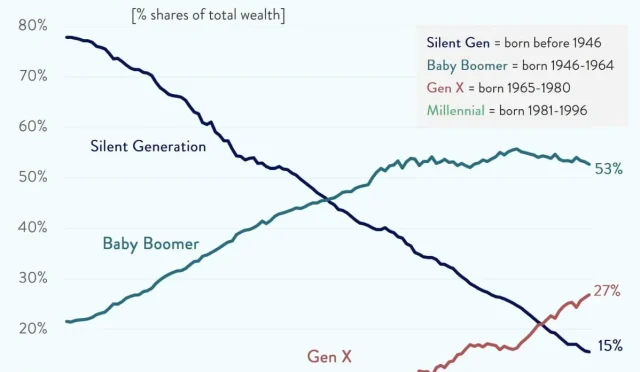Wang Jian YouTube insights provide a unique perspective on US politics and China-US relations, making him a significant voice in the current media landscape. As a former journalist from Hong Kong, Wang offers critical analysis that challenges popular narratives about political figures, including his views on Trump and the media. Amid the complexities of journalism in Hong Kong, his transition to a digital platform has allowed him to reach a global audience, particularly Chinese expatriates and those curious about American cultural insights. His engaging broadcasts serve as an antidote to the often censored narratives coming from China, thereby highlighting crucial topics around democracy and authoritarianism. Through his analytical approach, Wang Jian opens up conversations about the intricacies of Hong Kong journalism and its significance in a world shaped by shifting power dynamics.
The YouTube channel of Wang Jian brings forth compelling observations regarding political dynamics between the United States and China, offering insights that resonate with viewers across various demographics. With a background steeped in Hong Kong’s journalism, he merges knowledge with a personable broadcasting style, engaging audiences who are eager for genuine discourse about pressing global issues. His content not only informs but also entertains, often juxtaposing his experiences with the ongoing challenges facing democracy. By addressing the media’s role in shaping perceptions, especially concerning critical events in the US, Wang enlightens his viewers on the nuances of political discourse. This blend of education and entertainment exemplifies the evolving role of journalism in the digital age.
Wang Jian’s Unique Perspective on US Politics
Wang Jian provides a unique commentary on US politics that resonates with a broad audience, especially Chinese expatriates. Drawing parallels between modern political figures like Donald Trump and historical figures like Mao Zedong, Wang’s observations are steeped in both cultural context and personal experience. He aptly notes that Americanness, when viewed from the outside, can appear as an unappreciated privilege—akin to the wealthy inheriting their fortune without understanding the struggles that came before. This view has positioned him as a commentator who can convey the nuances of democracy as understood by populations that have endured authoritarian regimes.
His broadcasts often highlight the perception of American democracy as something that is taken for granted, encapsulating his thoughts when he claims, “Americans are democracy’s equivalent of second-generation wealth.” This poignant analogy underscores Wang’s critical stance on the complacency inherent in those born into freedom, especially when contrasted with the historical struggles of the Chinese people. By emphasizing the importance of awareness and understanding in both domestic and international contexts, he urges his viewers not to become apathetic toward the erosion of democratic values.
The Rise of YouTube News Channels in a Censored World
In recent years, platforms like YouTube have emerged as essential sources for news, especially in regions like mainland China, where traditional media faces censorship. Wang Jian exemplifies this shift, attracting over 800,000 subscribers who depend on his insights regarding US-China relations and the intricacies of global politics. The immediacy of online platforms allows him to bypass the restrictions faced by traditional outlets, making information accessible to those who would otherwise be left in the dark due to government propaganda. Wang’s approach of blending analysis with entertainment has struck a chord, providing viewers both context and comfort amid an increasingly chaotic media landscape.
Moreover, Wang’s YouTube channel represents a broader trend where independent journalists fill the void left by conventional media entities. With Hong Kong’s press freedoms diminishing and mainstream channels increasingly constrained by government regulations, content creators like Wang step in to deliver unfiltered narratives. This decentralization of news production underscores the power of digital platforms to serve as conduits for free expression, enabling conversations about sensitive topics like US foreign policy and the realities of life under authoritarian rule.
Navigating China-US Relations through Current Events
Amid complex international dynamics, Wang Jian’s insights aid in deciphering the intricate web of China-US relations, particularly in the context of changing political landscapes and trade negotiations. His discussions encompass key issues like tariffs and immigration, often framing them within personal anecdotes that bring the realities of these policies to life for his viewers. This narrative style not only draws attention to pressing matters but also humanizes the implications of governmental decisions that impact everyday lives on both sides of the Pacific.
By evaluating events through a lens shaped by his experiences, Wang cultivates a deeper understanding of how individual policies resonate within the broader narrative of global interactions. His commentary often extends to analyze the implications of American actions like the trade ban on Chinese nationals, encouraging viewers to consider the rippling effects these policies have on international relationships and economic stability. This reflective manner of reporting aids his audience in grasping the complexities of foreign affairs, promoting a more informed perspective on significant political issues.
Trump and Media: Wang Jian’s Critical Analysis
Wang Jian’s critical examination of Donald Trump’s approach toward media and governance reveals a profound commentary on the state of journalism in the US. He often juxtaposes Trump’s populist rhetoric with his observations on leadership styles across different cultural contexts, particularly drawing parallels with Chinese political figures. Wang’s candid critiques highlight the perception that the US media landscape is experiencing a severe identity crisis, suggesting that mainstream American journalists are not effectively holding power accountable as they should.
In referencing how Trump engages with the media, Wang highlights the alarming trend of misinformation and sensationalism that permeates contemporary news cycles. His blunt assessment—that if he were the editor of a major publication, he would adorn its front page with expletives—speaks to his frustration with the inadequacies he perceives in American journalism. Through this lens, Wang invites his audience to consider the responsibilities of the media in properly informing the populace amidst a climate where accurate reporting is often under threat.
Navigating the Challenges of Journalism in Hong Kong
Wang Jian’s journey from Hong Kong to the United States encapsulates the evolution of journalism in environments rife with censorship. Having worked within Hong Kong’s relatively free press landscape, he witnessed firsthand the gradual erosion of journalistic integrity under increasing pressures from the Chinese government. His insights reflect the struggles faced by journalists in maintaining objectivity and credibility in a climate where dissent is often silenced. Wang’s departure from Hong Kong marks not just a personal transition but a significant commentary on the challenges many journalists today face in authoritarian contexts.
As he navigates his new role as a YouTube educator, Wang remains committed to fostering a space for open dialogue about media freedoms. He emphasizes that the current restrictions on Hong Kong’s press are not merely local issues but have wider implications for global journalism. By sharing his knowledge through online platforms, he aims to inspire a new generation of journalists to advocate for truth and continue the fight against censorship, all while keeping the spirit of free expression alive.
The Impact of Censorship on Chinese Audiences
Censorship has a profound effect on how Chinese audiences receive news about the West, contributing to a disjointed understanding of global events. Wang Jian highlights this issue as he discusses his role in bridging the information gap between repressed domestic narratives and the realities of life in countries like the United States. This disjunction often leaves individuals unaware of critical issues, forcing them to grapple with a fabricated narrative created by state-controlled media. Wang’s broadcasts serve as a counter-narrative to this phenomenon, offering a lens through which viewers can explore the truth about international relationships.
Moreover, the rise of social media and independent content creators like Wang has increasingly blurred the lines between information and disinformation. Viewers searching for reliable news have to navigate a complex landscape filled with both credible insights and unchecked narratives. Wang’s commitment to providing fact-based commentary not only empowers his audience but also reinforces the need for critical thinking amidst a barrage of information. His programming often encourages viewers to question sources and engage with varied perspectives, thereby fostering a more nuanced understanding of the news.
Wang Jian as a Cultural Bridge
Wang Jian positions himself as a cultural bridge between Eastern and Western audiences, utilizing his platform to navigate complex socio-political landscapes and build understanding across cultures. By sharing his experiences as a Chinese expatriate, he illustrates the contrasts between life in the US and China while addressing pertinent issues involving cultural perceptions and political ideologies. His ability to engage with diverse audiences showcases his unique perspective, drawing on his past to inform present discussions on critical topics like democracy and governance.
Through his candid narratives, Wang effectively humanizes the abstract complexities of US-China relations, paving the way for empathetic conversations that often feel strained by geopolitical tensions. His platform acts as a space for both critique and collaboration, inviting viewers from different backgrounds to come together and deliberate on pressing issues. Wang’s success in building this relationship underlines the importance of intercultural dialogue in an increasingly fragmented world.
The Role of Viewer Engagement in Wang Jian’s Broadcasts
Viewer engagement plays a pivotal role in Wang Jian’s YouTube broadcasts, as he actively encourages dialogue and interaction during his sessions. By integrating viewer questions and comments into his program, Wang fosters a sense of community among his audience. This interactive format not only enhances the viewing experience but also helps him address the specific concerns and curiosities of his followers, building trust and rapport over time. His listeners often feel personally connected to him, referring to him as “Teacher Wang”—a term of endearment that emphasizes the mentor-like role he plays.
Moreover, this engagement allows for the shared exchange of knowledge, as viewers provide local insights from China that Wang incorporates into his discussions. It creates a dynamic atmosphere where information flows freely, enabling both Wang and his audience to learn from one another. The discussions during his broadcasts often bring to light challenges faced by those living under oppressive regimes, thereby amplifying voices that may otherwise go unheard. This model of shared commentary marks a refreshing departure from traditional journalism, reinforcing Wang’s image as a relatable, yet authoritative figure in the media landscape.
Wang Jian’s Future in Global Journalism
Looking forward, Wang Jian’s role in global journalism appears both promising and vital. As media landscapes evolve and traditional outlets grapple with integrity and credibility, independent voices like Wang’s may serve as beacons of truth amidst political turmoil and censorship. His commitment to transparency and factual reporting positions him as a necessary component of contemporary journalism, especially as he bridges diverse cultural narratives while addressing relevant global issues. Wang’s ongoing dedication to producing quality content reflects a larger trend where independent journalists are gaining influence and providing their audiences with essential perspectives.
As global politics become increasingly intertwined, Wang’s insights will likely continue to resonate with both Chinese and Western audiences. With each broadcast, he not only informs but also challenges his viewers to think critically about the information they consume and the implications of their beliefs. His ability to adapt to changing circumstances while staying true to his core mission of delivering honest commentary makes him a key player in shaping the future of journalism, especially within the context of US-China relations.
Frequently Asked Questions
What are Wang Jian’s insights on US politics as shared on his YouTube channel?
Wang Jian offers unique insights on US politics, particularly under Trump’s administration, emphasizing the populism and authoritarian tendencies he perceives in Trump’s leadership style. He often draws parallels between Trump’s behavior and historical authoritarian figures, providing a critical perspective that resonates with his audience of Chinese expatriates and mainland viewers.
How does Wang Jian’s YouTube channel address China-US relations?
Wang Jian’s YouTube channel focuses extensively on China-US relations by analyzing geopolitical tensions, trade wars, and cultural exchanges. He provides an informed commentary that highlights the nuances of these interactions while addressing misconceptions and the impact of American policy on both nations.
What is Wang Jian’s perspective on the role of YouTube news channels in the current media landscape?
Wang Jian views YouTube news channels as vital platforms for delivering uncensored, accurate news, especially in contexts where traditional media may fail due to censorship, such as in China. His channel serves as an alternative source of information, bridging gaps left by mainstream media.
How does Wang Jian relate Hong Kong journalism to his YouTube insights?
Having a background in Hong Kong journalism, Wang Jian incorporates his experiences to emphasize the importance of press freedom and accurate reporting. His insights on YouTube reflect the dwindling freedoms in Hong Kong and the broader implications for journalism in authoritarian regimes.
What does Wang Jian say about the impact of Trump on the media landscape?
Wang Jian critiques Trump’s influence on the media landscape by pointing out a trend towards sensationalism and misinformation. He argues that Trump’s administration has challenged journalistic integrity, making the role of responsible journalism more crucial than ever.
Why do viewers trust Wang Jian’s analyses on US politics and media?
Viewers trust Wang Jian’s analyses due to his professional background and commitment to objectivity. His style blends news delivery with personal anecdotes, creating an engaging format that resonates with his audience seeking genuine information amidst a complex political climate.
What topics are commonly discussed in Wang Jian’s Daily Observations on YouTube?
In his Daily Observations, Wang Jian discusses a variety of topics, including current US political events, China-US trade relations, immigration issues, and viewer questions about life in both countries. His format allows for a deep dive into significant global issues from a Chinese perspective.
How does Wang Jian engage his YouTube audience during broadcasts?
Wang Jian actively engages his audience through interactive segments, responding to viewer questions, and acknowledging comments during his broadcasts. This approach fosters a sense of community and encourages regular viewership, as fans appreciate his approachable style.
What challenges does Wang Jian highlight regarding censorship in China and its reflection on US media?
Wang Jian discusses the challenges of censorship in China, contrasting it with the challenges faced by media in the US. He points out the increasing polarization and difficulties of accessing reliable information in both countries, underscoring the importance of independent journalism.
What is Wang Jian’s vision for the future of journalism, based on his YouTube insights?
Wang Jian envisions a future where journalism serves to educate and empower the public, helping individuals navigate complex realities. He believes that access to reliable information is crucial for fostering understanding and combating authoritarianism on both sides of the Pacific.
| Key Point | Description |
|---|---|
| Wang Jian’s Background | Former journalist from Hong Kong focusing on US-China relations and global politics on YouTube. |
| YouTube Channel | Over 800,000 subscribers; broadcasts twice daily covering news and audience questions. |
| Style of Presentation | Combines professional journalism with personal anecdotes, engaging the audience with humor. |
| Critique of Trump | Compares Trump to Mao, focusing on populism and authoritarian trends. |
| Censorship Insights | Discusses restrictions on information in China and the role of censorship in shaping public discourse. |
| Democracy Observations | Believes Americans lack appreciation for democracy, comparing them to ‘second-generation wealth’. |
| Engagement with Audience | Encourages viewer participation through comments, fostering community interaction. |
| Future Journalism | Sees his role as providing knowledge and insights to help others navigate complex political realities. |
Summary
Wang Jian YouTube insights focus on the intricate world of global politics, particularly the relationships between the US and China. As a dynamic commentator, Wang Jian leverages his background in journalism to provide audiences with compelling, often humorous perspectives that encourage critical thinking. His unique blend of analysis and personable delivery not only entertains but also educates, making his insights particularly valuable for understanding the complexities of contemporary governance and media narratives. Wang Jian’s work serves as a reminder of the importance of journalism in shaping public discourse and fostering informed citizenry.

